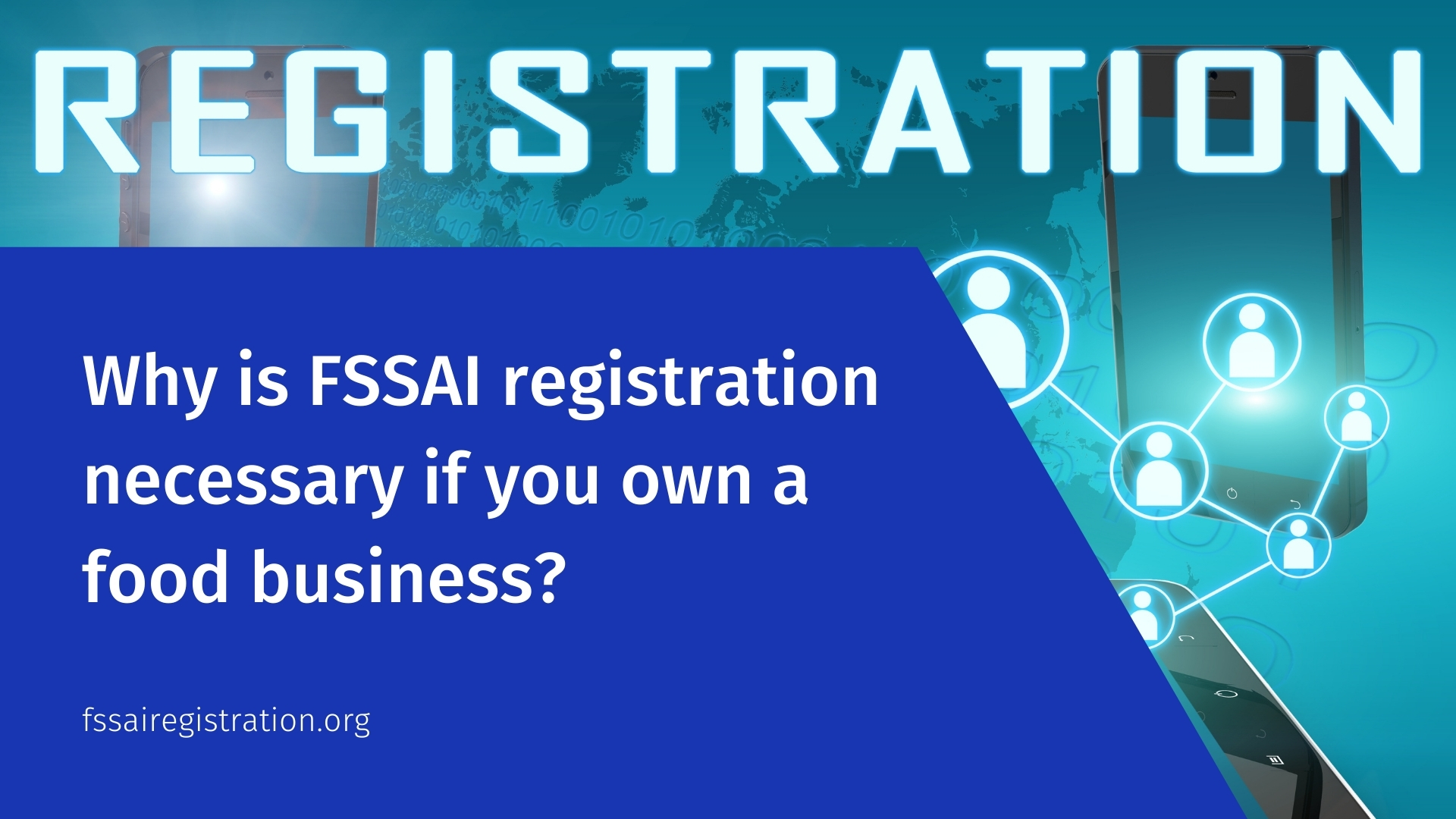
Why is FSSAI necessary for a food business?
The Food Safety and Standards Authority of India (FSSAI) is the regulatory body responsible for overseeing food safety and hygiene in the country. It acts as the Food Regulation Authority of India, ensuring that Food Business Operators (FBOs) follow proper standards in the processing, transportation, and handling of food products
FSSAI conducts regular compliance inspections, in line with the Food Safety and Standards Act, 2006, to ensure that businesses meet all required regulations and safety norms.
The primary goal of the department is to ensure that food consumed by the public is safe and healthy.
To achieve this, food products and ingredients are carefully tested, and regular inspections are carried out to prevent adulteration and the sale of unsafe or suspicious food items.
What is FSSAI registration?
FSSAI Registration is a compulsory certification for ensuring the safety and quality of food items that are processed, manufactured, or sold in India. In simple terms, it is a food safety license issued by the Food Safety and Standards Authority of India (FSSAI).
If you plan to start any food-related business in India, whether it's a manufacturing unit, trading company, or restaurant, you must obtain an FSSAI license. Businesses that comply with the FSSAI Act are issued a 14-digit license number, which must be displayed on food packages along with the official FSSAI logo.
This license number is printed on the packaging of food products to assure customers that the product meets safety standards. To apply for the FSSAI license, you need to create a username and password on the FSSAI Food Licensing portal, where you can submit your application and required documents online.
The roles of FSSAI are mentioned below:
- FSSAI legally certifies the processing and production activities of your food business, ensuring compliance with national food safety standards.
- The Food Safety and Standards Authority of India (FSSAI) is the primary body responsible for promoting awareness about food safety and addressing related issues.
- It establishes science-based food safety standards to regulate the quality and hygiene of food products across the country.
- To protect public health, FSSAI regulates the entire food supply chain, from manufacturing, storage, and distribution to sales, import, and export of food products
How many types of food licenses are there?
There are three types of food licenses issued by FSSAI:
- Central License
- State License
- Basic Registration
Although all three serve as food licenses, they differ based on the scale, nature, and turnover of the food business operations.
Why is a food license necessary?
FSSAI Registration or food licensing is mandatory for any Food Business Operator (FBO) involved in the production, processing, storage, transportation, distribution, or sale of food products. Whether you are manufacturing, refining, storing, delivering, or shipping food items, having a valid FSSAI license or registration is essential.
Benefits of fssai food license:
- Having an FSSAI license gives you a legal advantage. Without it, you risk paying heavy penalties, often much more than the actual cost of obtaining the license. In serious cases, running a food business without a license can lead to legal action and even the shutdown of your operations. That’s why it is always advisable to get your FSSAI license before starting or expanding your food business.
- This license also plays a crucial role in growing your business. Whether you're applying for a business loan or seeking funding, an FSSAI license proves the legitimacy of your operations, making the loan approval process quick and hassle-free.
- From a marketing perspective, having an FSSAI license also boosts your credibility with customers. It reflects your commitment to food safety and hygiene, making your business a preferred choice for health-conscious customers.
- Moreover, you can use the FSSAI logo on your product packaging, menu cards, and promotional materials. This helps build brand trust and sets your business apart from unlicensed competitors, giving you a strong edge in the market.
What are the regulations for FSSAI registration for basic food licenses?
- If you collect or handle milk, it should not be more than 500 liters per day.
- If you are making or processing food, it should not be more than 100 kg or liters per day (this doesn't include meat or dairy-based products).
Having an FSSAI license is always a good idea, it keeps your business legal and safe. Many small companies operate without it, but if you're caught without a license, you could face heavy fines or even a business shutdown by the authorities.
There is a special online portal by the FSSAI department where you can easily apply for your license in Delhi and across India.
Need help? Our 24×7 customer support team is here for you! Just fill out the complaint form at fssairegistration.org, and our team will get back to you shortly with a solution.
Follow us on Facebook for the latest news and food safety updates.
Subscribe to our YouTube channel today – Click Here
- Apply FSSAI License
- FSSAI license registration for Restaurants
- FSSAI License Renewal in India
- Why is FSSAI necessary for a food business?
- FSSAI for fish exporters in India